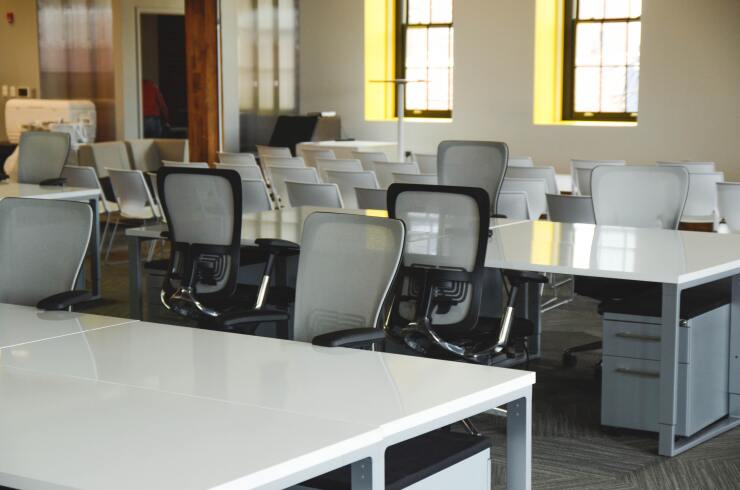Employees are not eager to
More than 70% of workers do not think their offices are safe and almost a third of employees would look for a new job before returning to work, the study found. Employees are most concerned with air quality and the cleanliness of shared devices and workspaces.
“Many facilities have made changes to their procedures but have not invested in the building itself — and their occupants have noticed," Vimal Kapur, president of Honeywell Building Technologies, said in a statement. “Workers are going to demand more from buildings in the future. Creating a healthier and safer environment will be a differentiator for staff retention and recruiting.”
Read more:
Thirty-five percent of workplaces do not have a firm plan for fully reopening their office, but 16% hope to reopen during Q1, according to a survey by The Conference Board, a business research organization. However, 70% of employees would prefer to continue
Contracting the virus at work is a major concern for employees: the Honeywell survey found that 54% of employees don’t think building management has taken the necessary steps to keep them safe. Forty-two percent believe that management will not enforce
Employees are not only worried about a lack of safety precautions taken by their employer, but by the risks from their coworkers as well: 59% of respondents said they were concerned that other employees would not follow the rules, the Honeywell survey found.
“Workers are keenly attuned to the steps employers are taking to make their workspaces safer and healthier,” Kapur said. “Air quality, for example, is not something that will be dismissed once we're on the other side of this pandemic. Good air quality will help make workers feel more comfortable as they return back to their offices.”
Employers have made efforts to address these safety concerns. The Conference Board found that 82% of employers plan to purchase safety equipment like masks, cleaning supplies and contactless entry devices and 80% will enforce policies like limiting the number of employees allowed in the workplace at a time. But only 60% of employers have surveyed employees about their readiness to the return to work.
Read more:
“Companies that sought worker sentiment about their comfort levels were more likely to implement safety measures, revise work-from-home policies and provide childcare,” Rebecca Ray, executive vice president at The Conference Board, says. “This disconnect reinforces the need for companies to receive buy-in from their most precious resource — their people.”






